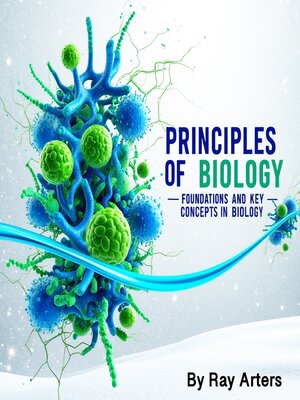Principles of Biology
audiobook (Unabridged) ∣ Foundations and Key Concepts in Biology
By Ray Arters

Sign up to save your library
With an OverDrive account, you can save your favorite libraries for at-a-glance information about availability. Find out more about OverDrive accounts.
Find this title in Libby, the library reading app by OverDrive.



Search for a digital library with this title
Title found at these libraries:
| Library Name | Distance |
|---|---|
| Loading... |
This audiobook is narrated by a digital voice.
Biology stands as the scientific study of life itself, encompassing the remarkable diversity of living organisms that inhabit our planet and the fundamental processes that sustain them. At its core, biology seeks to understand what distinguishes living systems from non-living matter, how life emerged from chemical processes, and how the complexity we observe in biological systems arises from relatively simple underlying principles. The nature of life has fascinated humanity throughout history, driving scientific inquiry that has revealed the extraordinary unity underlying biological diversity and the elegant mechanisms that enable organisms to grow, reproduce, respond to their environment, and evolve over time.
Defining life presents both philosophical and practical challenges, as the boundary between living and non-living systems can sometimes appear blurred. However, certain characteristics consistently emerge as hallmarks of living systems. Living organisms exhibit organization at multiple hierarchical levels, from the molecular components within cells to complex ecosystems containing thousands of interacting species. This organization is not static but dynamic, maintained through constant energy input and molecular turnover that enables organisms to maintain their structure and function despite the natural tendency toward disorder described by thermodynamics.
The cellular basis of life represents one of the most fundamental principles in biology, establishing that all living organisms are composed of one or more cells that serve as the basic units of life. This cell theory, developed in the nineteenth century through the work of scientists like Matthias Schleiden, Theodor Schwann, and Rudolf Virchow, revolutionized biological thinking by providing a unifying framework for understanding life at its most basic level.







